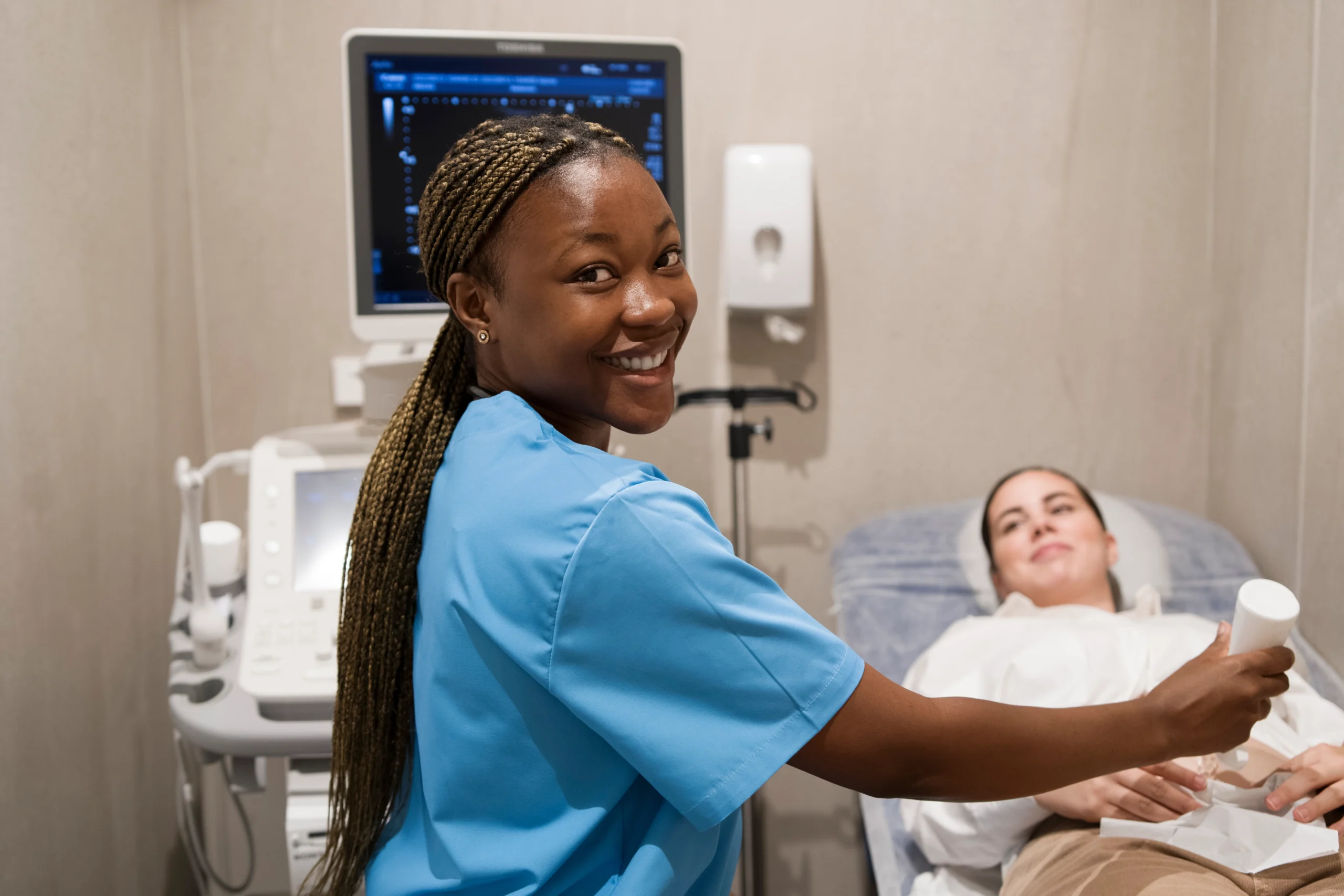
The Importance of Regular Gynecological Checkups: A Guide for Women
Women’s health is an essential aspect of overall well-being, yet it is often overlooked in the hustle and bustle of daily life. One of the most crucial components of maintaining good health is regular gynecological checkups for women. These appointments are vital for early detection of potential health issues, preventive care, and addressing concerns specific to a woman’s reproductive system. In this blog, we will explain why regular gynecological checkups are important, what they typically involve, and how they can positively impact women’s long-term health.
What Is a Gynecological Checkup?
A gynecological checkup is a routine medical examination performed by a gynecologist or a healthcare professional trained in women’s health. These checkups focus on the health of a woman’s reproductive system, including the uterus, ovaries, cervix, and vagina. Gynecological exams may also cover other areas of concern, such as breast health, the management of menstruation, menopause, sexual health, and family planning.
While the exact nature of the checkup can vary depending on a woman’s age, health history, and specific concerns, regular gynecological checkups are essential for preventive care and health maintenance.
Importance of Regular Gynecological Checkups
1. Early Detection of Reproductive Health Issues
One of the primary reasons for regular gynecological checkups for women is to detect potential health problems early. Many gynecological conditions, such as ovarian cysts, fibroids, and infections, may not exhibit noticeable symptoms until they have progressed significantly. Regular gynecological checkups for women allow gynecologists to identify any abnormalities or issues before they become more serious.
For instance, a Pap smear test, which is typically performed during regular gynecological checkups for women, is an essential screening tool for detecting abnormal cell changes in the cervix that could lead to cervical cancer. Early detection of such changes increases the chances of successful treatment and can potentially save lives.
2. Preventing and Managing Infections
Women are more prone to certain types of infections, such as urinary tract infections (UTIs) and yeast infections. Regular gynecological checkups for women are an opportunity to identify and address any infections that could lead to more serious complications if left untreated. These infections can cause discomfort, pain, and, in some cases, fertility problems.
Additionally, gynecologists can provide valuable advice on preventing infections and offer treatment options to manage recurring issues. For women with frequent yeast infections or UTIs, regular gynecological checkups can help develop a personalized plan to reduce the risk of future occurrences.
3. Breast Health and Cancer Screening
A gynecological checkup is also an important time for assessing breast health. Gynecologists often perform breast exams as part of regular gynecological checkups, checking for lumps, unusual changes, or tenderness in the breast tissue. While mammograms are the gold standard for breast cancer screening, especially for women over 40, a breast exam during regular gynecological checkups can be an effective first step in identifying potential problems.
For younger women, breast self-examination techniques can be taught during regular gynecological checkups, helping women become more aware of any changes in their breast tissue over time. Early detection of breast cancer or abnormalities improves the likelihood of successful treatment and recovery.
4. Monitoring Menstrual Health and Addressing Irregularities
Menstrual health is an essential aspect of a woman’s reproductive health. Regular gynecological checkups provide an opportunity to discuss any menstrual concerns, such as heavy bleeding, irregular cycles, or pain during menstruation. These issues may indicate underlying conditions such as polycystic ovary syndrome (PCOS), fibroids, or endometriosis, which can impact fertility and overall health if left untreated.
If you experience any of the following symptoms, regular gynecological checkups are highly recommended:
- Extremely heavy periods
- Menstrual cycles longer than 35 days or shorter than 21 days
- Severe pelvic or abdominal pain
- Changes in the regularity or duration of periods
By addressing these concerns early during regular gynecological checkups, women can receive treatment options that alleviate symptoms and improve their quality of life.
5. Sexual Health and Family Planning
Regular gynecological checkups are also a valuable time to discuss sexual health and family planning. Whether you’re considering starting a family, using contraception, or experiencing concerns related to sexual function, a gynecologist can provide expert advice and support.
Family planning options range from hormonal contraception (such as birth control pills, patches, or IUDs) to fertility treatments for women who are trying to conceive. Additionally, gynecologists can address sexual health issues, such as painful intercourse, and provide solutions to improve overall sexual wellness.
6. Managing Menopause and Hormonal Changes
As women approach menopause, typically around the age of 50, they may experience a range of hormonal changes that affect their overall health. Symptoms such as hot flashes, mood swings, vaginal dryness, and sleep disturbances can have a significant impact on daily life.
Regular gynecological checkups for women are crucial during this transition, as gynecologists can offer advice on managing menopausal symptoms. Hormone replacement therapy (HRT) and other non-hormonal treatments are options that gynecologists may discuss with patients during regular gynecological checkups to alleviate discomfort and reduce the risk of conditions like osteoporosis or cardiovascular disease, which can increase after menopause.
7. Fertility and Preconception Care
For women who are planning to start a family, regular gynecological checkups are an essential part of preconception care. A gynecologist can help assess fertility, address any underlying health conditions that may affect pregnancy, and recommend lifestyle changes to improve the chances of conception.
Additionally, women with a history of pregnancy complications, such as recurrent miscarriages or gestational diabetes, may benefit from regular gynecological checkups to monitor their health before and during pregnancy. Early intervention can help optimize fertility and reduce the risk of complications during pregnancy.
8. Mental and Emotional Health
While gynecological exams primarily focus on physical health, they can also serve as an opportunity to discuss mental and emotional well-being. Reproductive health is closely tied to emotional health, and conditions such as PMS, postpartum depression, and hormone imbalances can have a significant impact on mental health.
Regular gynecological checkups provide a safe space for women to discuss these mental health challenges. A gynecologist can provide resources, recommend counseling, and offer treatment options for managing the mental health challenges associated with reproductive health. Addressing both physical and emotional health in a holistic way ensures that women receive comprehensive care.
How Often Should You Have Regular Gynecological Checkups?
The frequency of regular gynecological checkups depends on a woman’s age, health status, and individual needs. In general, women should begin visiting a gynecologist by the age of 21, or earlier if they are sexually active. After the age of 21, annual checkups are often recommended, especially if a woman is experiencing any health concerns.
- For women aged 21 to 29, regular gynecological checkups may include a Pap smear (for cervical cancer screening) and tests for sexually transmitted infections (STIs).
- For women aged 30 to 65, Pap smears should still be part of the annual checkup, but every three years may be sufficient for those who have normal results. Women over 40 should also begin discussing mammograms and other preventive tests during regular gynecological checkups.
- For women over 65, the need for annual exams may decrease, but regular gynecological checkups are still important to monitor overall health and well-being.
Conclusion
Regular gynecological checkups are vital for maintaining optimal reproductive health and overall well-being. These exams offer a chance to detect potential health issues early, provide preventive care, and discuss important topics related to sexual health, family planning, and menopause. By prioritizing regular gynecological checkups, women can take control of their health and ensure that they live healthier, happier lives. Don’t wait for symptoms to appear—take charge of your health today with a visit to your gynecologist.
For more information, check our Blog Section.
All Categories
Recent Posts
Why SDG 4 Cannot Be Achieved Without Ending Period Poverty
Tags
Give them a helping hand
Every donation fuels our mission to combat period poverty. Your generosity brings us closer to menstrual equity.
+234-909-482-1642
inquiries@blossomflow.org




